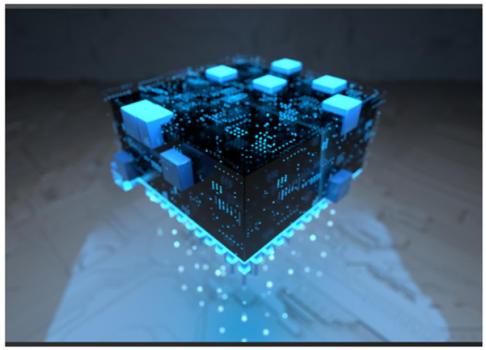K
Kathleen Martin
Guest
Have you ever taken a trip down a technology rabbit hole and wonder if you would ever come out? As a real estate developer, we seek to find ways to enhance our property revenues, but we also search for countless ways to reduce our expenses, become more efficient and enhance our net operating income. In short, we are seeking ways to maximize our investors’ returns and liquidity.
While the world has gone largely digital, certain financial markets remain archaic for managing, buying, and selling assets. This is especially true in the commercial real estate marketplace where the investment sector is very illiquid and inaccessible to most of society. Yes, this represents an inefficient market, but this manually intensive infrastructure also provides for a “technology intervention.”
In short, by using blockchain technology and issuing real estate assets on a distributed ledger (also commonly known as tokenization), the real estate investment market could automate middleman processes, increase liquidity, lower capital requirements for investment and improve transparency.
Basic concepts of blockchain
If you have been following banking, investing, or cryptocurrency over the last 10 years, you may have heard the term blockchain. Blockchain is the record-keeping and storage technology behind many of these financial networks like bitcoin. But what is it … exactly?
In simple terms, blockchain is a database technology that stores information. Specifically, it stores data in blocks that are then chained together … hence the name … blockchain. As new data comes in, it is entered into a fresh block and is then chained onto the previous block, which makes the data chained together in chronological order.
Blockchain was invented for bitcoin by Satoshi Nakamoto in 2008 as a shared, irreversible ledger that facilitates the process of recording transactions, ownership, pricing and tracking assets in a business network. An asset can be tangible (a house, car, cash, land) or intangible (intellectual property, patents, copyrights, branding). Virtually anything of value can be tracked and traded on a blockchain network, reducing risk, eliminating fraud, and cutting costs for all involved.
Digital currency
Digital currency is a form of currency that is available only in digital or electronic form, and not in physical form. It is also called digital money, electronic money, electronic currency, or cyber cash. Digital currencies are intangible and can only be owned and transacted by using computers or electronic wallets connected to the Internet or designated networks.
Like any standard fiat currency, digital currencies can be used to purchase goods as well as to pay for services. Digital currencies have all the intrinsic properties like physical currency, and they allow for instantaneous transactions that can be seamlessly executed for making payments across borders.
Continue reading: https://www.bizjournals.com/dallas/news/2021/08/27/emerging-trends-in-real-estate-how-blockchain.html
While the world has gone largely digital, certain financial markets remain archaic for managing, buying, and selling assets. This is especially true in the commercial real estate marketplace where the investment sector is very illiquid and inaccessible to most of society. Yes, this represents an inefficient market, but this manually intensive infrastructure also provides for a “technology intervention.”
In short, by using blockchain technology and issuing real estate assets on a distributed ledger (also commonly known as tokenization), the real estate investment market could automate middleman processes, increase liquidity, lower capital requirements for investment and improve transparency.
Basic concepts of blockchain
If you have been following banking, investing, or cryptocurrency over the last 10 years, you may have heard the term blockchain. Blockchain is the record-keeping and storage technology behind many of these financial networks like bitcoin. But what is it … exactly?
In simple terms, blockchain is a database technology that stores information. Specifically, it stores data in blocks that are then chained together … hence the name … blockchain. As new data comes in, it is entered into a fresh block and is then chained onto the previous block, which makes the data chained together in chronological order.
Blockchain was invented for bitcoin by Satoshi Nakamoto in 2008 as a shared, irreversible ledger that facilitates the process of recording transactions, ownership, pricing and tracking assets in a business network. An asset can be tangible (a house, car, cash, land) or intangible (intellectual property, patents, copyrights, branding). Virtually anything of value can be tracked and traded on a blockchain network, reducing risk, eliminating fraud, and cutting costs for all involved.
Digital currency
Digital currency is a form of currency that is available only in digital or electronic form, and not in physical form. It is also called digital money, electronic money, electronic currency, or cyber cash. Digital currencies are intangible and can only be owned and transacted by using computers or electronic wallets connected to the Internet or designated networks.
Like any standard fiat currency, digital currencies can be used to purchase goods as well as to pay for services. Digital currencies have all the intrinsic properties like physical currency, and they allow for instantaneous transactions that can be seamlessly executed for making payments across borders.
Continue reading: https://www.bizjournals.com/dallas/news/2021/08/27/emerging-trends-in-real-estate-how-blockchain.html

